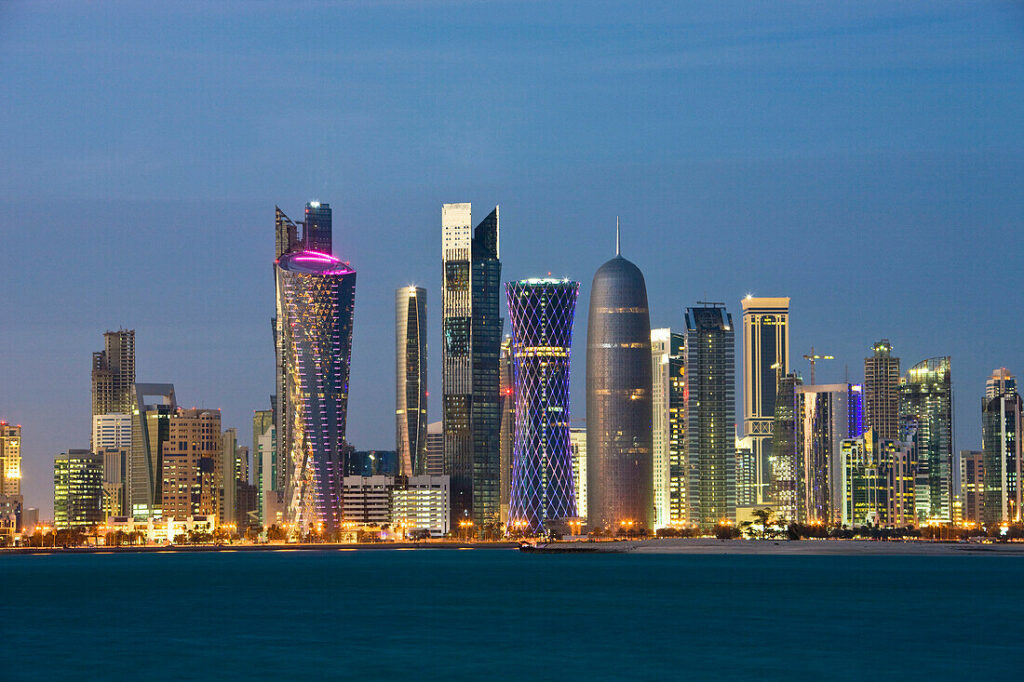Countries With Low Taxes For Expats part 2 – Part one is here.
15 Countries with Low Taxes for Expat
Many countries offer low tax rates and other financial incentives to encourage skilled workers and entrepreneurs to come and settle in their country. It can be a great opportunity for expats that want to save money on taxes, as long as they meet the criteria for residency. In this article, we’ll take a look at 15 countries with low taxes for expat workers and entrepreneurs.
1. Belgium

Belgium is a great place to live and work as an expat. The country has a strong economy and offers a wide range of job opportunities for skilled workers. Additionally, the Belgian government provides tax breaks to expats willing to live and work in the country.
Belgium’s tax system is based on the principle of equitable burden-sharing. To make this happen, Belgium uses a system of progressive tax rates combined with deductions and allowances to reduce the amount of taxable income. Income levels are taxed at progressively higher rates through six brackets before reaching 38%.
2. Qatar

Qatar has recently become a popular destination for expats, thanks to its booming economy and relaxed visa regulations. The country offers a number of financial incentives to expats, including a flat tax rate of just 5%.
Qatar’s tax system is based on the premise that everyone should pay their fair share. The 5% tax rate is applied to both Residents and Non-Residents of Qatar and applies to people living and working in the country. As an expat, you may also be able to benefit from tax-free income on some of your foreign-sourced earnings.
3. Saudi Arabia

Saudi Arabia has a strong economy thanks to its oil reserves and is one of the world’s leading oil producers. The country is also a popular destination for expats from all over the world, attracted by the excellent career opportunities and low taxes on incomes of all kinds.
Saudi Arabia uses a “Salaam” system, which means no tax on agricultural income, international transport, or oil exports. Incomes from banking and investment are also taxed at a very low rate. The standard tax rate for individuals is just 20%, and there are no taxes on capital gains or dividends.
4. Bahrain

Bahrain is a small island country located in the Persian Gulf and is home to a thriving expat community. The country has a strong economy, thanks to its oil and gas reserves, and is an ideal place to come and work as an expat. Bahrain offers a wide range of career opportunities for skilled workers and has a tax system which is designed to be non-intrusive.
The majority of individuals in Bahrain are taxed at a flat rate of 10%, but there are exceptions for those who receive rental income or dividends, subject to a progressive tax rate of 12%.
5. United Arab Emirates

The UAE is another popular expat destination, thanks to its fantastic year-round weather and a strong economy. The country has many career opportunities for skilled workers, with hundreds of multinational companies operating in the free trade zones around the seven emirates.
The UAE has a zero tax policy on income, capital gains, wealth, and inheritance. This means that expats can enjoy all the benefits of living in this beautiful country without worrying about incurring any additional taxes.
6. Austria

Austria is a popular destination for expats thanks to its picturesque mountains and lively cities. The country has a strong economy, with some of the largest banks in Europe based around the capital city of Vienna. Austria has very low taxes on both corporate and personal income, which attracts many expats to come and work or study there.
The vast majority of individuals are taxed at just 1% up to an annual taxable earning of €7,624. Above this amount, the rate increases to 35%. This makes Austria a beautiful destination for expats looking for a low-tax environment in which to live and work.
7. Switzerland

Switzerland is one of the most popular expat destinations in the world, and it’s not hard to see why. The country has a strong economy and offers some of the lowest tax rates in Europe. It is also well-known for its peaceful and safe cities, excellent workforce, and beautiful landscapes.
Switzerland uses a progressive tax system that levies a federal income tax of between 8% to 26.2%. This applies to all types of incomes, including employment, self-employment, capital gains, retirement income, rental income, and royalties.
8. Singapore

Singapore is a country that is well known for its low taxes and business-friendly environment. The government has made it a priority to attract foreign businesses and investors. As a result, the country offers a number of tax incentives for expats who are looking to start a business.
The introductory income tax rate for individuals in Singapore is just 20%, which applies to all types of income, including employment, capital gains, and rental income. The only exception being that interest earned on bank deposits is taxed at 7%. This makes Singapore one of the best countries in the world for expats who are looking to start their own business.
9. Taiwan

Taiwan is an island country with a strong economy, and it’s well known for being a popular destination for expats from mainland China looking to escape the rising costs in their home country. Taiwan’s low taxes have been a key factor in its success, and this continues with businesses operating in the country only being subject to a 20% tax on profits.
Individuals in Taiwan are taxed at a rate of between 5% and 45%, depending on their income level and type of income. This makes the country an attractive destination for expats looking for a lower tax environment in which to live and work.
10. Cyprus

Cyprus is a beautiful island country with growing tourism industry and a strong economy. The country is known for its friendly people and relaxed lifestyle, and it’s also very popular with expats thanks to its competitive tax rates.
The majority of individuals in Cyprus are taxed at 20%, but this rate is reduced to 10% of their income is derived from work or if they are a director of a limited company. Expats working in finance are taxed at 35% due to the financial activities which are permitted on the island.
11. Malaysia

Malaysia is another country which has grown in popularity among expats, and it’s well known for its low taxes. People who are looking to expand their business will find that Malaysia offers some of the best tax incentives in the world, making it ideal for start-up businesses.
The introductory income tax rate in Malaysia is just 26%, but this rate can be reduced to as low as 6% if certain conditions are fulfilled. Expats in Malaysia only have to pay tax on any income generated outside the country, and foreign businesses are taxed at just 18%.
12. Georgia

Georgia is a beautiful country that borders Turkey, Armenia, Azerbaijan, and Russia. The government has recently gained independence from the former Soviet Union, making it an attractive prospect for businesses looking to invest in emerging economies. Georgia is well known for having low taxes and competitive tax rates, which are similar to countries such as Cyprus and Romania.
The main income tax rate for individuals in Georgia is 20%, which applies to all types of income, including employment, capital gains, and rental income. The only exception being that interest earned on bank deposits is taxed at 10%. This makes Georgia an attractive destination for expats who are looking for a lower tax environment in which to live and work.
13. Portugal

Portugal is a country which is well known for its relaxed lifestyle and beautiful beaches. The country has been through a number of financial difficulties in recent years, but it is starting to recover, and foreign businesses are starting to reinvest. Portugal offers a number of tax incentives for expats looking to start a business, and there are no taxes on capital gains for individuals who invest in startups.
The main rate of income tax for individuals in Portugal is 20%, which applies to all types of income, including employment, self-employment, capital gains, and rental income. Expats who work as freelancers or those who hold positions as directors of Portuguese companies may have to pay a lower rate of tax.
14. Bulgaria

Bulgaria is a country that is well known for its low cost of living and its competitive tax rates. The main income tax rate for individuals in Bulgaria is 10%, which applies to all types of income, including employment, capital gains, and rental income. This makes Bulgaria an attractive destination for expats looking for a low-tax environment to live and work in.
There is one exception to Bulgaria’s 10% flat rate of income tax, which is that individuals who have been resident in Bulgaria for at least 183 days in any given year must pay a flat rate of 15%. This generally does not apply to expats who hold other citizenship or who are only in Bulgaria for a short period of time.
Frequently Asked Questions about Expat Tax Rates

How do expat tax rates work?
When you are designated an ‘expat’ by the government, you are subject to special taxation rules. Expats are taxed based on their income during the time spent in Costa Rica. Foreign workers are often considered non-residents for tax purposes, but not always. Once you have been declared a resident for tax purposes, you will contribute to the national social security plan. This includes things like social security and healthcare.
Are there any benefits of being an expat?
There are many benefits of being an expat in Costa Rica, including not paying property taxes or inheritance taxes. There are also no capital gains taxes for selling your home. The quality of life in Costa Rica is also much higher than in many other countries, making the cost of living very low and affording you a higher standard of living.
Are there any tax breaks for expats?
Yes, there are a few tax breaks specifically for expatriates. One example is the Foreign Earned Income Exclusion, which allows you to exclude a certain amount of your income from being taxed in your home country. To qualify for this break, you must meet a few criteria, such as living in a foreign country for at least 330 days out of the tax year.
What is the Double Taxation Agreement?
The Double Taxation Agreement (DTA) is an agreement between two countries that sets out which country will be responsible for taxing specific types of income earned by an expatriate. For example, let’s say you’re a Canadian citizen who lives in the United States.
Under the DTA, the United States will be responsible for taxing any income you earn in the U.S., and Canada will be responsible for taxing any income you earn in Canada. This agreement can be helpful for expats because it allows them to avoid paying taxes on the same income in two countries.
Conclusion
You get to enjoy all the perks of living in a new country if there’s a low tax rate. Although expat tax rates can seem confusing and complicated but don’t worry; reading this guide will help you. And an expat, it’s essential to be aware of the tax rates you’re liable for! Nonetheless, check this platform for more updates.


